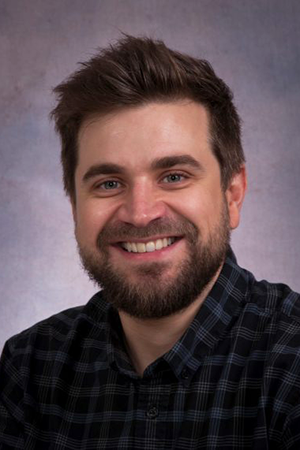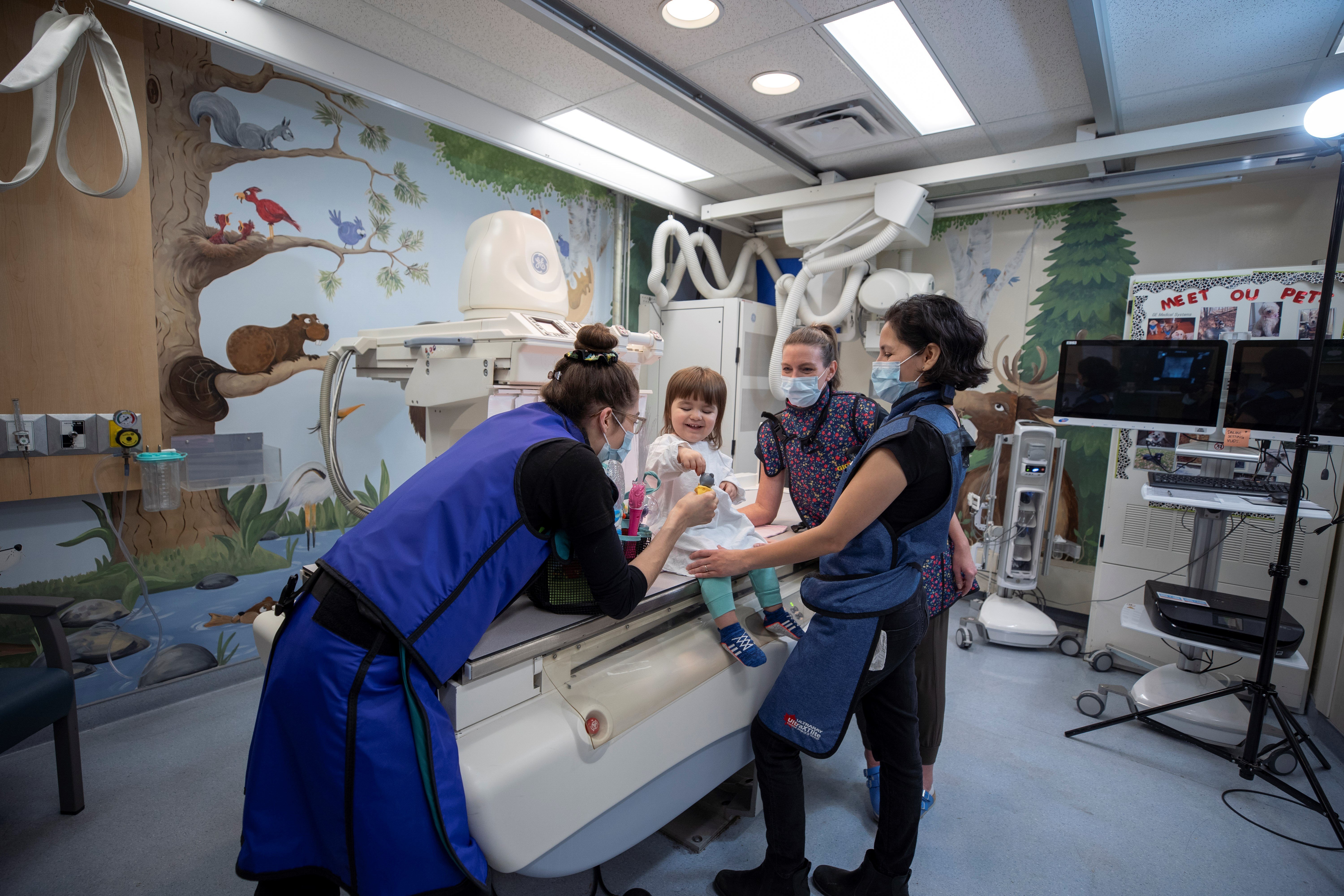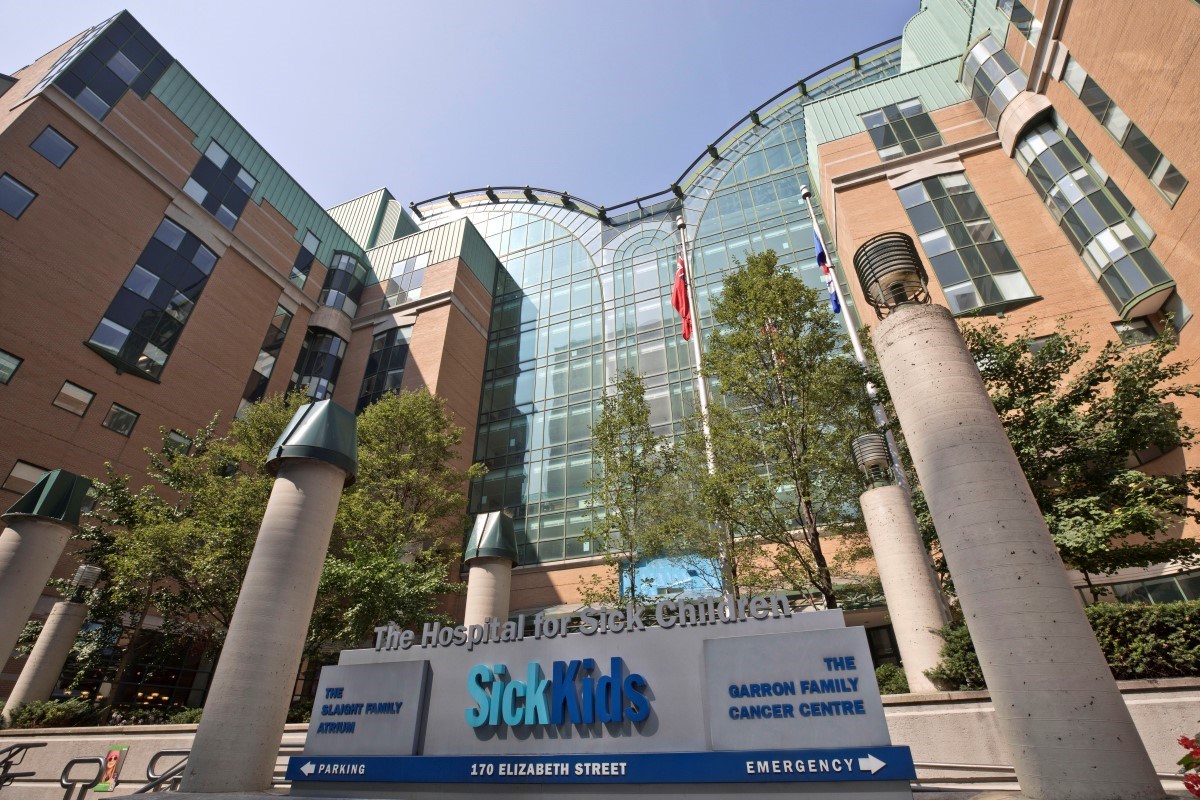
Benjamin Dunkley
Research Positions
Scientist
Neurosciences & Mental Health
Biography
Dr. Benjamin Dunkley studied at Cardiff University, UK, where he completed his PhD thesis on the role of cortical oscillations in oculomotor control and vision motion perception. He then completed a post-doctorate at York University, Toronto, where he studied transaccadic integration and spatiotopic representation in the dorsal visual stream.
This was followed by a post-doctorate at The Hospital for Sick Children (SickKids) with Drs. Margot Taylor and Elizabeth Pang, studying functional brain circuitry in cognition and behaviour and how this is dysfunctional in neuro-psychiatric disease, including PTSD and concussion. He now works at SickKids as a Clinical Associate in the Department of Diagnostic Imaging.
Research
Dr. Benjamin Dunkley is a cognitive neuroscientist who studies neural circuits in health and disease using non-invasive brain imaging. His work focuses on neurophysiology and systems neuroscience, with an emerging research focus on the development of AI and neuromodulation for use in precision medicine. He is particularly interested in the impact of trauma on neural systems, and how ‘invisible’ injuries can be detected and eventually treated using advanced neuroimaging and neurostimulation.
Education
- 2013–2015: Post-doctoral Research Fellow, Department of Diagnostic Imaging, The Hospital for Sick Children, Toronto, Canada
- 2012–2013: Postdoctoral Research Fellow, Centre for Vision Research, York University, Toronto, Canada
- 2008–2012: PhD Psychology & Neuroscience, School of Psychology/Cardiff University Brain Research Imaging Centre (CUBRIC), Cardiff University, Cardiff, UK
- 2007–2008: MRes Research Methods & Neuroimaging, The Wellcome Trust Laboratory for MEG Studies, Aston University, Birmingham, UK
- 2004–2007: B.Sc. (Hons) Psychology with Cognitive Science, University of Sussex, Brighton, UK
Experience
- 2015–Present: Clinical Associate, Department of Diagnostic Imaging, The Hospital for Sick Children, Toronto, Canada
- 2020–Present: Scientist, Neurosciences & Mental Health Program, SickKids Research Institute, Toronto, Canada
- 2016–Present: Associate Member, Institute of Medical Science, School of Graduate Studies (SGS) Appointment, University of Toronto, Toronto, Canada
- Collaborative Program in Neuroscience (CPIN) Faculty, University of Toronto, Canada
- 2016–Present: Assistant Professor, Department of Medical Imaging, University of Toronto, Toronto, Canada
- 2016–2020: Associate Scientist, Neurosciences & Mental Health Program, SickKids Research Institute, Toronto, Canada
- 2015–2016: Project Investigator, Neurosciences & Mental Health Program, SickKids Research Institute, Toronto, Canada
Achievements
- 2017: Banting Award for Military Health Research, Canadian Institute of Military & Veteran Health Research, Canada
- 2016: Nancy ET Fahrner Award, The Hospital for Sick Children, Toronto, Canada
- 2014: CPIN Research Day Outstanding Presentation - University of Toronto, Canada
- 2010: Prize for Early Promise 1st Year PhD Research, Cardiff University, UK
- 2010: Brain Travel Award - Guarantors of Brain Charity, University College London, UK
- 2009: Grindley Award, Experimental Psychology Society, UK
- 2008: Brain Travel Award, Guarantors of Brain Charity, University College London, UK
- 2008: School of Psychology/CUBRIC Internal Scholarship Award - Cardiff University, UK
- 2007: Advanced Neuroimaging Course Scholarship Award - Medical Research Council, UK
Publications
- Low-frequency connectivity is associated with mild traumatic brain injury. Dunkley, B. T., Da Costa, L., Bethune, A., Jetly, R., Pang, E. W., Taylor, M. J., & Doesburg, S. M. (2015). NeuroImage: Clinical, 7, 611–621.
- Resting-state hippocampal connectivity correlates with symptom severity in post-traumatic stress disorder. Dunkley, B. T., Doesburg, S. M. S. M., Sedge, P. A. A. P. A., Grodecki, R. J. J., Shek, P. N. N., Pang, E. W. W. E. W. E. W. E. W., & Taylor, M. J. M. J. J. (2014). NeuroImage: Clinical, 5, 377–384.
- Theta, mental flexibility, and post-traumatic stress disorder: connecting in the parietal cortex. Dunkley, B. T., Sedge, P. A., Doesburg, S. M., Grodecki, R. J., Jetly, R., Shek, P. N., … Pang, E. W. (2015). PloS One, 10(4), e0123541.
- Classifying post-traumatic stress disorder using the magnetoencephalographic connectome and machine learning. Zhang, J., Richardson, J. D., & Dunkley, B. T. (2020). Scientific Reports.
- Post-traumatic stress constrains the dynamic repertoire of neural activity. Mišić, B., Dunkley, B. T., Sedge, P. A., Da Costa, L., Fatima, Z., Berman, M. G., Taylor, M. J. (2016). Journal of Neuroscience.



